Find Help
More Items From Ergsy search
-

The Family Court without a Lawyer
Relevance: 100%
-

The Family Court without a Lawyer - Video 1 of 3
Relevance: 97%
-

The Family Court without a Lawyer - Video 2 of 3
Relevance: 96%
-

The Family Court without a Lawyer - Video 3 of 3
Relevance: 96%
-

What are the changes to Family Court Law in 2026?
Relevance: 91%
-

Magistrates in the Family Court: A Public Law Case
Relevance: 91%
-

Magistrates in the Family Court: A Private Law Case
Relevance: 91%
-
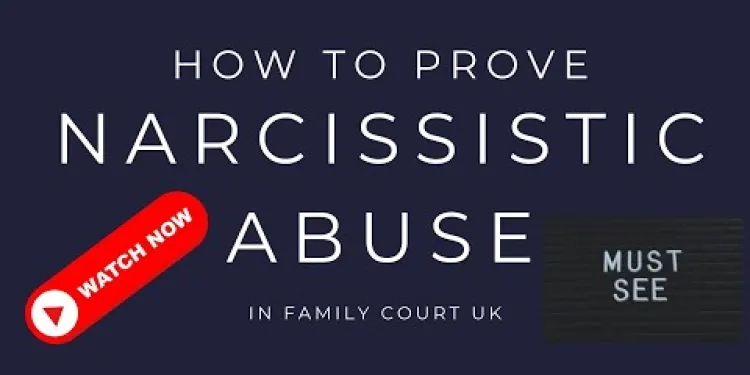
How To Prove Narcissistic Abuse In Family Court UK
Relevance: 88%
-

How to represent yourself in family court in England and Wales
Relevance: 88%
-

Are there modifications to legal aid access in family court for 2026?
Relevance: 84%
-

What digital services have been introduced in family courts in 2026?
Relevance: 83%
-

What are the new protocols for domestic violence cases in family court in 2026?
Relevance: 80%
-

Have the rules for changing a child's name in family court changed in 2026?
Relevance: 77%
-

Have the rights of same-sex couples been affected by the 2026 family court changes?
Relevance: 76%
-

What is the status of joint custody provisions in the 2026 family court updates?
Relevance: 73%
-

How have prenup agreements been affected by the 2026 family court changes?
Relevance: 73%
-

Are there any changes to surrogacy arrangements under the 2026 family court law?
Relevance: 73%
-

How are parental rights addressed differently in the 2026 family court updates?
Relevance: 72%
-

Court of Protection
Relevance: 68%
-

What are the key changes to family court law in 2026?
Relevance: 67%
-
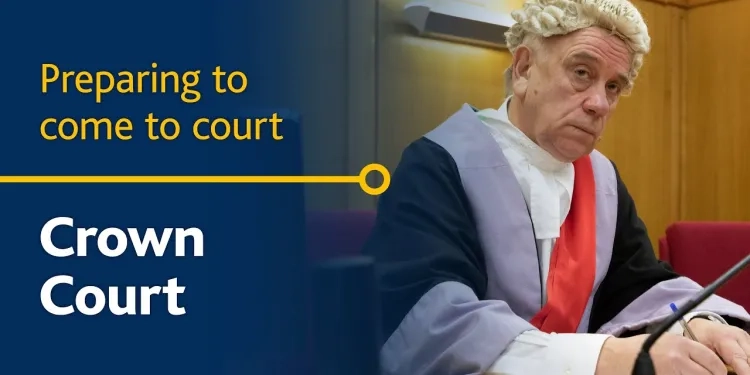
Crown Court - Preparing to come to court
Relevance: 66%
-

The Crown Court
Relevance: 65%
-

How do court holidays affect the timeline for a case to come to court?
Relevance: 62%
-

How does the type of case impact the court schedule?
Relevance: 61%
-

Child Care Proceedings | Family Law
Relevance: 60%
-
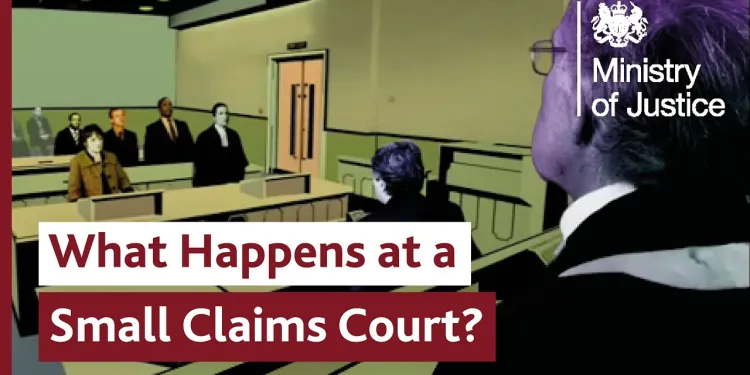
What Happens at Small Claims Court? Making a Court Claim for Money
Relevance: 59%
-

Does the location of the court affect case timing?
Relevance: 59%
-

How long does it take for a case to come to court?
Relevance: 57%
-

Why might a court date be delayed?
Relevance: 56%
-

Is there a standard minimum or maximum time for a case to reach court?
Relevance: 54%
-

Can the Attorney General override a court decision?
Relevance: 53%
-
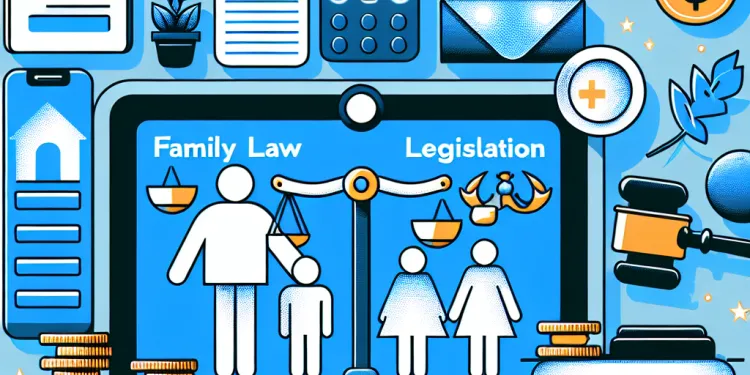
Impacts of Recent Changes to Family Law Legislation
Relevance: 53%
-

What steps can a party take to expedite a court date?
Relevance: 53%
-

Can I appeal a court's eviction decision?
Relevance: 53%
-

What factors affect the time it takes for a case to come to court?
Relevance: 52%
-

How quickly can a criminal case come to court?
Relevance: 52%
-

Navigating Changes in Family Law Post-Brexit
Relevance: 51%
-

How can I prepare for an eviction court hearing?
Relevance: 51%
-

How does the availability of judges affect the timing of a case coming to court?
Relevance: 51%
-
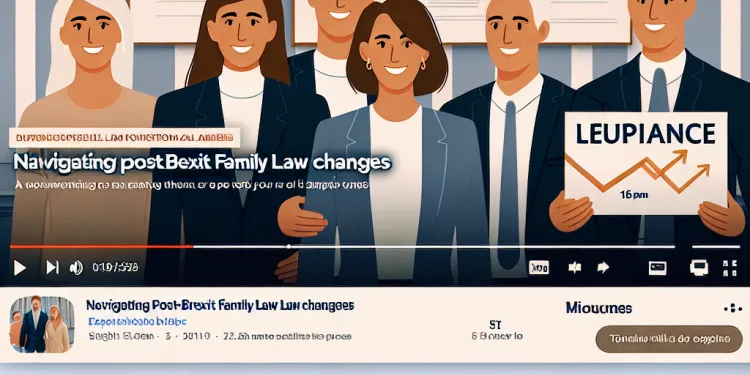
Navigating Post-Brexit Family Law Changes
Relevance: 51%
The Family Court without a Lawyer - Video 1 of 3
Introduction to Family Court
Navigating the family court system can be challenging, especially without legal representation. However, many individuals manage their cases effectively by understanding the court's processes and preparing adequately. This guide, based on the first video of a three-part series, aims to provide you with the essential information required for representing yourself in the family court within the United Kingdom.Understanding the Family Court
The family court deals with various matters, including divorce, child custody, financial disputes, and domestic abuse. It is designed to ensure fair and just resolution of familial conflicts. If you find yourself needing to resolve a family matter, understanding the structure and functions of the family court is crucial.Assessing the Necessity of Legal Representation
While having a lawyer can be advantageous, it is not mandatory. Many individuals represent themselves, also known as 'litigants in person.' Whether due to financial constraints or personal choice, going without a lawyer requires thorough preparation, confidence, and a good grasp of legal procedures. This video series aims to equip you with the knowledge to approach your case with competence.Preparing Your Case
Preparation is key to successfully presenting your case in family court. Begin by gathering all necessary documents and evidence, such as financial records, correspondence, and any relevant agreements. Organizing these documents in chronological order can help you present a clear and concise case. Additionally, understanding the specific laws and regulations relevant to your matter is essential.Filing Applications and Forms
The process starts with filing the appropriate applications and forms. Make sure all details are accurate and complete. The court provides various resources and guidance to help you fill out these forms correctly. Missing information or errors can cause delays, so double-checking your submissions is advisable.Attending Court Hearings
Court hearings can be intimidating, but being well-prepared can ease the process. Dress appropriately, be punctual, and remain respectful throughout the proceedings. Practice presenting your case beforehand, focusing on the main points and supporting evidence. Remember, the judge is there to facilitate a fair hearing, so clarity and honesty are vital.Seek Help When Needed
Even without a lawyer, you don't have to manage everything alone. Utilize resources like Citizens Advice, family mediation services, and support groups. These organizations can offer guidance on procedural matters and emotional support.Conclusion
Representing yourself in the family court is a feasible option with the right preparation and resources. This first video in the series provides a foundational understanding of what to expect and how to prepare. Stay tuned for the subsequent videos, which will delve deeper into specific aspects of handling family court without a lawyer.The Family Court Without a Lawyer - Video 1 of 3
Introduction to Navigating Family Court Without Legal Representation
In the United Kingdom, dealing with family court matters can be an emotionally charged and complicated process. However, it is possible to represent yourself without a lawyer. This video series aims to guide you through understanding the procedures, what to expect, and how to prepare effectively for representing yourself in family court.
Understanding the Family Court System
The family court deals with a variety of issues, including divorce, child custody, child maintenance, and domestic abuse cases. Understanding the structure and function of the family court is crucial. In the UK, the family court system comprises magistrates' court, county court, and the High Court, each handling different types of family issues. Recognizing which court will handle your case is the first step in navigating the system successfully.
Preparing for Your Case
Self-representation requires thorough preparation. Begin by gathering all relevant documents related to your case, such as financial statements, communication records, and any previous court orders. You should also become familiar with the specific laws and legal procedures that pertain to your situation. Resources like Citizens Advice and government websites can provide valuable information and guidance.
Filing the Initial Paperwork
One of the first steps in your case will be filing the appropriate paperwork. This includes completing and submitting the necessary forms, which vary depending on the nature of your case. Forms can be obtained from the UK government's official website. Ensure that all forms are filled out accurately and submitted within required deadlines to avoid delays in your case.
Attending Court Hearings
Going to court can be intimidating, especially without a lawyer. The video covers essential tips on how to dress, how to address the judge, and the importance of punctuality. Understanding courtroom etiquette and being prepared to present your case clearly and concisely can make the process smoother. Practicing your statements and anticipating possible questions can also help you feel more confident.
Conclusion
While representing yourself in family court without a lawyer can be challenging, it is entirely possible with the right preparation and understanding. This video series offers guidance and practical advice to help you navigate the family court process in the UK. Stay tuned for the next videos that will delve deeper into specific areas of representing yourself in family court.
The Family Court without a Lawyer - Video 1 of 3
Introduction to Navigating Family Court Alone
Entering the family court system without a lawyer can seem daunting, but it is a route many people in the United Kingdom undertake due to various reasons, such as financial constraints or a desire to have personal control over their legal matters. The aim of this video series is to provide you with the necessary information and confidence to represent yourself effectively in family court.
Understanding the Family Court
The Family Court deals with issues such as divorce, child custody, and other family-related disputes. Knowing the structure and processes of the court can help demystify the experience. Typically, cases start in front of a magistrate or judge, depending on the complexity and nature of the case. It is crucial to familiarize yourself with the basic proceedings and what to expect during your hearings.
Preparation is Key
Being well-prepared is crucial when representing yourself. Start by gathering all necessary documents, such as financial records, correspondence, and any testimonies that support your case. Organize these documents chronologically in a binder for easy access. Additionally, writing a brief statement explaining your position can be beneficial for clarifying and focusing your arguments during the court proceedings.
Support Resources
Though you may not have a lawyer, you do have access to several resources that can provide support and guidance. Organizations such as Citizens Advice Bureau, Support Through Court, and various online forums offer advice and moral support. Moreover, self-help guides and free legal clinics can offer insight into specific areas of family law pertinent to your case.
Communicating Effectively in Court
Your ability to communicate clearly and confidently will significantly affect your experience and the outcome of your case. Speak politely and refer to the judge as 'Your Honour'. Make sure to listen carefully to instructions and questions posed by the judge or the opposing party and respond succinctly. Practicing your key points beforehand can help ensure that you present your case coherently.
Conclusion
Tackling family court without a lawyer can be challenging, but with thorough preparation and the right mindset, you can represent yourself effectively. This video series aims to empower you with knowledge and strategies to navigate the family court process. In the next video, we will delve deeper into specific tactics and common pitfalls to avoid.
The Family Court without a Lawyer - Video 1 of 3
Introduction to Family Court
Going to family court without a lawyer can be hard. But many people do it by learning how the court works and preparing well. This guide, from our first video in a three-part series, will help you understand what you need to know to represent yourself in the family court in the UK.Understanding the Family Court
The family court handles things like divorce, who looks after children, money arguments, and family problems. The court is there to help solve family issues fairly. Knowing how the family court works is very important if you are sorting out a family problem.Do You Need a Lawyer?
Having a lawyer can be helpful, but you don't have to have one. Many people go to court by themselves, which is called being a 'litigant in person.' Whether it's because a lawyer costs too much or for other reasons, going without a lawyer means you need to be ready and understand what to do. This video series will give you the info you need.Getting Ready for Your Case
Getting ready is very important to do well in family court. Start by collecting all the necessary papers like bank records, letters, and any important agreements. Put these papers in order by date to make your case clear. It’s also important to know the laws that are linked to your case.Filling Out Forms
To start your case, you need to fill out forms and applications. Make sure everything you write is correct. The court has tools that can help you with these forms. Check your information carefully before sending it to avoid mistakes that can delay your case.Going to Court Hearings
Going to court can be scary, but if you're ready, it will be easier. Dress nicely, arrive on time, and be polite. Practice talking about your case and focus on your main points and evidence. The judge wants to make sure everything is fair, so be clear and truthful.Ask for Help When You Need It
Even if you don't have a lawyer, you can still get help. Try reaching out to Citizens Advice, family mediation services, and support groups. They can help with both court processes and emotional support.Conclusion
You can represent yourself in family court if you get prepared and use the right resources. This first video gives you the basic info about what happens and how to get ready. Watch the next videos for more details about going to family court without a lawyer.The Family Court Without a Lawyer - Video 1 of 3
Introduction to Family Court Without a Lawyer
In the UK, going to family court can be very emotional and complicated, but you can do it without a lawyer. This video series helps you understand what happens in court, what to expect, and how to prepare to represent yourself in family court effectively.
Understanding the Family Court System
The family court helps with things like divorce, deciding who children live with, how much money is needed for kids, and cases about family harm. Knowing how the family court works is important. In the UK, there are three main courts: the magistrates' court, the county court, and the High Court. Each court deals with different family problems. Knowing which court will handle your case is the first step to do things right.
Getting Ready for Your Case
If you want to represent yourself, you need to prepare well. Start by gathering all the important papers like money details, messages, and past court orders. Learn about the laws and rules that matter for your case. Help from places like Citizens Advice and government websites can give you good information.
Filing the First Paperwork
The first thing you do is fill out and give in the right forms for your case. The forms may be different depending on your situation. You can find these on the UK government's website. Make sure the forms are correct and given on time to avoid delays.
Going to Court Hearings
Going to court without a lawyer can be scary, but this video gives important tips. It shows how to dress, how to speak to the judge, and why being on time is important. Knowing how to behave in court and having your case ready to explain simply can make things easier. Practicing what you will say and thinking about questions you might be asked can make you feel better too.
Conclusion
Representing yourself in family court can be tough, but you can do it with good preparation and understanding. This video series offers tips and advice to help you in the UK family court. Watch the next videos to learn more about representing yourself in family court.
The Family Court without a Lawyer - Video 1 of 3
Introduction to Navigating Family Court Alone
Going to family court without a lawyer can feel scary. Many people in the UK do this because lawyers can be expensive or because they want to handle things themselves. This video series will help you learn what to do so you can feel confident in court.
Understanding the Family Court
The Family Court helps with things like divorce and who looks after children. Knowing how the court works can make it less confusing. Your case will usually be in front of a person called a magistrate or a judge. It’s important to learn what will happen in court and what is expected of you.
Preparation is Key
It's important to be ready when you go to court. Collect all important papers like money records and letters. Put them in order in a big folder so you can find them easily. Also, write a short paper about your side of the story to help you when talking in court.
Support Resources
Even without a lawyer, you can get help from different places. Groups like the Citizens Advice Bureau and Support Through Court can give advice. Online places and free legal help can also be useful for your case.
Communicating Effectively in Court
Talking clearly and politely in court is very important. Call the judge "Your Honour". Listen well and answer questions simply. Practice what you want to say at home to help you speak clearly in court.
Conclusion
Going to family court alone can be tough, but you can do it with good preparation. This video series will give you tips and tricks to help you. In the next video, we will talk about specific ways to handle court better.
Frequently Asked Questions
What is family court?
Family court is a specialized court that deals with cases related to family matters such as divorce, child custody, and domestic violence.
Do I need a lawyer for family court?
No, you are not required to have a lawyer when attending family court, although legal advice can be beneficial. The video series is designed to help you navigate the system without a lawyer.
What types of cases are heard in family court?
Family court hears cases related to divorce, child custody and visitation, child and spousal support, domestic violence, and other family-related issues.
How do I start a case in family court?
To start a case, you need to file the appropriate forms with the family court. Guidance and forms can usually be found on the court's website or by contacting the court directly.
What is mediation?
Mediation is a process where an independent mediator helps both parties to reach an agreement without going to court. It is often required before you can go to family court.
Can I get legal aid for family court?
Legal aid may be available for certain family cases, such as those involving domestic violence or child protection. Eligibility is based on your income and the specifics of your case.
What should I expect during my first family court hearing?
During your first hearing, the judge will typically gather information about the case and might make temporary orders. It's important to be prepared and bring any relevant documentation.
What documents do I need to bring to family court?
Documents you may need include your application, any evidence supporting your case, financial statements, and any previous court orders or agreements.
How long does a family court case take?
The duration of a family court case varies depending on the complexity of the case and the court’s schedule. Some cases can be resolved in weeks, while others may take months or even years.
What is a Cafcass officer?
A Cafcass (Children and Family Court Advisory and Support Service) officer is someone who works with children and families to provide reports and recommendations to the court in cases involving children.
What are parental rights and responsibilities?
Parental rights and responsibilities refer to the legal rights, duties, and authority a parent has concerning their child's welfare, including decisions about education, health care, and living arrangements.
What happens if the other party does not attend the court hearing?
If the other party does not attend the hearing, the judge may proceed in their absence, potentially making decisions based on the information available.
How can I prepare for a family court hearing?
To prepare, gather all necessary documents, understand the issues at hand, prepare your arguments, and if possible, attend a court session as an observer to familiarize yourself with the process.
What is a child arrangement order?
A child arrangement order is a court order that determines where a child will live and when they will spend time with each parent.
How do I enforce a family court order?
If a family court order is not being followed, you can apply to the court to enforce the order. The court can then take various actions to ensure compliance, including imposing penalties.
What is the purpose of the Family Court?
The Family Court in the UK deals with legal issues related to family matters such as divorce, child custody, and financial arrangements following a separation.
Do I need a lawyer to go to Family Court?
No, you do not necessarily need a lawyer to go to Family Court. Many people represent themselves as litigants in person.
What is a litigant in person?
A litigant in person is an individual who represents themselves in court without the assistance of a lawyer.
How do I start a case in Family Court?
To start a case, you need to complete and submit the appropriate forms, which vary depending on the nature of the case, for example, a C100 form for child arrangements.
What type of cases does the Family Court handle?
The Family Court handles cases related to divorce, child arrangements, domestic violence, adoption, and financial disputes following separation.
Can I get legal aid for my Family Court case?
Legal aid may be available for certain family matters, particularly where domestic abuse or child protection issues are involved. Eligibility is means-tested.
What documents do I need to bring to the Family Court?
You should bring all relevant documents related to your case, including application forms, evidence, witness statements, and any previous court orders.
What happens during a court hearing?
During a court hearing, each party will have the opportunity to present their case, provide evidence, and question witnesses. The judge will then make a decision based on the information presented.
How long does it take for a Family Court to make a decision?
The timeframe varies depending on the complexity of the case. Simple cases might be resolved in a few months, while complex cases can take over a year.
Can I appeal a decision made by the Family Court?
Yes, you can appeal a decision if you believe there has been a legal error or that the decision is unjust. However, there are strict time limits and procedures for appeals.
What is a child arrangements order?
A child arrangements order determines where a child will live and how much time they will spend with each parent and other significant persons.
What is the role of a Cafcass officer?
A Cafcass officer (Children and Family Court Advisory and Support Service) provides independent advice to the court, ensuring that children's voices are heard and their best interests are considered.
Can mediation be used instead of going to Family Court?
Yes, mediation is often encouraged as a way to resolve disputes without going to court. It can be quicker, less stressful, and less expensive than court proceedings.
What is a financial remedy order?
A financial remedy order is a court order that sets out the financial arrangements between divorcing or separating partners, including the division of assets and maintenance payments.
How can I prepare for my Family Court hearing?
To prepare, gather all necessary documents, make notes on key points you want to discuss, consider any evidence you may need to present, and if possible, seek advice from legal professionals or support organizations.
What is family court?
Family court is a legal venue in the United Kingdom where cases related to family issues such as divorce, child custody, and domestic violence are handled.
Do I need a lawyer in family court?
No, you do not necessarily need a lawyer in family court. Many people represent themselves, especially in simple cases.
What types of cases does family court handle?
Family court handles cases such as divorce, child custody and visitation, child support, adoption, and domestic abuse.
How do I start a case in family court?
To start a case in family court, you need to file the appropriate forms, which can be obtained from the court or online, and pay any required fees.
What are the necessary forms for family court?
The necessary forms vary depending on the type of case. Common forms include Form C100 for child arrangements and Form D8 for divorce.
What is a C100 form?
A C100 form is used to apply for a court order related to child arrangements, such as where the child will live and how much time they will spend with each parent.
Can I get legal aid for family court?
Legal aid may be available for some family court cases, typically those that involve domestic violence or child protection issues. Eligibility is based on income and the type of case.
How should I prepare for a family court hearing?
Preparation involves gathering and organizing all relevant documents, practicing what you want to say, and understanding the key issues of your case.
What should I wear to family court?
It’s important to dress smartly and conservatively for family court to show respect to the court. Business attire is generally appropriate.
Can I bring witnesses to family court?
Yes, witnesses who can provide relevant information can be brought to family court, but you must inform the court and the other party in advance.
How long does a family court case take?
The length of time for a family court case can vary widely, from a few months to over a year, depending on the complexity of the issues and the court's schedule.
What happens if I do not attend a family court hearing?
If you do not attend a family court hearing, the court may proceed without you, and decisions may be made in your absence that could affect your rights.
What is mediation in the context of family court?
Mediation is a process where a neutral third-party helps the disputing parties to reach an agreement outside of court. It is often encouraged or required before going to court.
How can I enforce a family court order?
If someone does not follow a family court order, you can apply to the court for enforcement. This can involve various legal actions, depending on the nature of the order.
What is a MIAM?
A MIAM, or Mediation Information and Assessment Meeting, is a meeting to see if mediation might be a better way to resolve your dispute instead of going straight to court. It's often a required step before filing a family court application.
What is family court?
Family court is a special place. It helps to fix problems between family members.
If families have a disagreement, they might go to family court to get help.
In family court, a judge listens and makes fair decisions.
If you find it hard to understand, you can ask someone you trust to explain it.
Family court is a special place for solving family problems. It helps with things like parents splitting up, deciding who children live with, and keeping people safe from harm at home.
Do I need a lawyer in family court?
Family court can be confusing. A lawyer is someone who knows the law and can help you. It is a good idea to have a lawyer, but you do not have to. If you cannot get a lawyer, you can ask for help.
- Bring a trusted friend or family member for support.
- Write down important things you want to say in court.
- Look for free legal advice or community support groups.
You do not have to have a lawyer when you go to family court. But having a lawyer can help. This video series will show you how to go to court without a lawyer.
What cases do family courts look at?
Family courts handle cases about family matters.
Here are some examples of what they do:
- Help decide where children will live if parents split up.
- Help families when parents can't agree about money.
- Help children who need to be kept safe.
If you find reading hard, you can ask someone you trust to read with you. You can also use audiobooks or text-to-speech tools.
The family court helps with problems in families. It deals with things like parents getting divorced, who the kids will live with, when parents can visit their kids, money that one parent might need to pay the other, staying safe from harm at home, and other problems families might have.
How do I begin a case in family court?
Starting a case in family court can seem tricky, but let's break it down into simple steps.
Step 1: Talk to someone who can help, like a legal helper or a support worker.
Step 2: Get the right forms from the court. If you need help, ask a court worker.
Step 3: Fill out the forms with the correct information. Take your time and ask for help if needed.
Step 4: Hand in (submit) the forms to the court. A court worker can show you where to go.
Tip: Use a checklist to make sure you have everything you need.
If you find reading hard, try using a ruler or your finger to follow the lines. You can also ask someone to read it with you.
To start a case, you need to fill out some forms. You can find these forms on the family court's website or by asking the court for help.
What is mediation?
Mediation is a way to solve problems. It helps people talk and agree on things.
If two people have a problem, a helper called a mediator can assist. The mediator does not take sides. They are there to help everyone talk and find a solution.
Here are some tips to help with understanding:
- Ask someone to explain if you do not understand.
- Use pictures or drawings to help tell the story.
- Take your time and think about each step.
Mediation is when a person called a mediator helps two people agree on something. They do this so that the people don't have to go to court. Many times, you need to try mediation before you can go to family court.
Can I get help to pay for family court?
Sometimes, going to family court can cost a lot of money. But you might be able to get help paying for it.
Here are some things to think about:
- Do you have a low income? If you don't earn much money, you might be able to get help.
- Do you have savings? If you don't have a lot of money saved, that can also help you get this aid.
- What is your case about? Some types of problems in family court are more likely to get help, like keeping safe if someone is hurting you.
You can talk to someone who knows about legal aid to see what help you can get. They can give you advice.
It might also help to bring a friend or a helper with you when you talk to someone about this.
You might get help paying for a lawyer in some family problems. This help is for big problems like if someone is being hurt at home or if there are worries about a child's safety. To get this help, they will look at how much money you earn and what your problem is about.
What will happen at my first family court meeting?
Going to a family court for the first time can feel scary, but knowing what to expect can help.
Here are some things to keep in mind:
- You will meet a judge. The judge is the person who listens and makes decisions.
- You might have to talk about why you are there. It's okay to be nervous. Just try your best to speak clearly.
- It can be helpful to bring someone you trust with you for support, like a friend or family member.
- You might see other people there, like lawyers or other families. Everyone is there for different reasons.
Remember, it's okay to ask for help if you don't understand something. You can ask the judge or your lawyer to explain things to you.
In your first meeting with the judge, the judge will learn about your case. The judge might also make temporary rules to follow. It's important to be ready and bring important papers with you.
What papers do I need to take to family court?
If you have to go to family court, you need to bring some important papers. Here’s what you might need:
- Your ID, like a passport or driver’s license.
- Any letters or documents from the court.
- Papers that show your story, like bank statements or notes.
- If you have information about money, like pay slips, bring them.
- If there are any police reports about your family, bring them too.
It's a good idea to put all your papers in a folder so they don’t get lost. Ask someone you trust for help if you are unsure.
Before your court day, you can ask a helper, like a lawyer, to check your papers and make sure you have everything you need.
You might need these papers:
- Your application form.
- Papers that help prove your case.
- Money documents like bank statements.
- Old court papers or agreements.
Use pictures or highlight words to help you.
How long does it take when a family goes to court?
Going to court can take a while. Here is what you might need to know:
- Family court cases can take a few months or even longer.
- Each case is different, so the time can change.
- Some things can make it take more time, like if there are lots of people involved.
Need some help? Here are things that can help you understand better:
- Ask a grown-up you trust to explain what is happening.
- Write down questions you have.
- Use a calendar to mark important dates.
How long it takes for a family court case to finish can be different. It depends on how hard the case is and how busy the court is. Some cases are done in a few weeks. Other cases can take many months or even years to finish.
What is a Cafcass officer?
A Cafcass officer is someone who helps children and families. They work when parents are separating or arguing. They make sure kids are safe and listened to.
If you need help reading, you can:
- Ask someone to read it with you.
- Use a computer or tablet to read aloud.
- Write down questions if you don't understand.
A Cafcass officer is a person who helps children and families. They tell the court what they think is best for the child when families can't agree.
What do parents have to do and what can they decide?
Parents have important jobs. They take care of their children and help them grow. They also make big and small decisions for their kids. Let's look at what they are responsible for and what decisions they can make.
If you need help understanding or remembering things, here are some tips:
- Ask someone you trust to explain things to you.
- Use drawings or pictures to help you understand.
- Take your time and go through things slowly.
Parental rights and responsibilities are about what parents can and should do for their children. This includes making choices about school, health, and where the child lives.
What if the other person does not go to court?
If the other person does not come to court, what happens next?If the other person does not come to the meeting with the judge, the judge might continue without them. The judge could make choices using the information they have.
How can I get ready for a family court hearing?
Getting ready for a family court hearing means you need to be well-prepared. Here are some simple steps to help you:
1. Learn about the court: Find out what happens in family court. You can ask someone you trust to explain it to you.
2. Collect your papers: Gather all the important papers you need. This could include letters, emails, or notes about your family.
3. Talk to a helper: It might be good to talk to someone who knows about family court, like a lawyer or a support worker. They can give you advice.
4. Practice what to say: Think about what you want to say in court. You can practice with a friend or write it down.
5. Relax and breathe: It’s normal to feel nervous. Take deep breaths and try to stay calm.
Support tools: You can use pictures or simple notes to remember important things. Asking a family member or friend for support is also a good idea.
Get ready by doing these things:
- Collect all the papers you need.
- Learn about the important things you need to talk about.
- Get your reasons ready for why you are right.
- If you can, go and watch a court meeting to see how it works.
Tools like graphic organizers can help you plan your ideas.
What is a Child Arrangement Order?
A Child Arrangement Order is a decision made by a judge.
It tells who a child will live with and who the child will see.
This order helps the child spend time with both parents.
If you find this confusing, you can ask for help from a trusted adult.
A child arrangement order is a special rule from the court. It says where a child will live and when they will see each parent.
If you find reading hard, try using audiobooks or reading apps. They can help you understand better. Also, drawing pictures of the story might help you remember it.
How do I make sure a family court order is followed?
If a family court has made a decision and someone is not doing what the court said, here is how you can get help:
1. **Talk to a Lawyer**: They can give you advice and help you know what to do next.
2. **Go Back to Court**: You can ask the court to make sure the order is followed. This is called "enforcing" the order.
3. **Use Support Services**: There are places and people who can help you understand what to do. Some services may have people who can talk to the other person for you.
**Remember**: It's important to keep all papers and information the court gave you safe.
You can also talk to someone you trust who can help explain things better.
If someone is not doing what a family court order says, you can ask the court for help. You can tell the court to make sure the order is being followed. The court can take different steps to make sure everyone does what they are supposed to. This might include giving out punishments.
What does the Family Court do?
The Family Court in the UK helps with problems in families. This can be things like getting divorced, deciding who children will live with, and sorting out money after parents split up.
Do I need a lawyer for Family Court?
You might wonder if you need a lawyer for Family Court. Lawyers can help you understand the rules and speak in court. But you do not have to have a lawyer. You can choose to speak for yourself.
Here are some things that might help:
- Ask someone you trust to come with you for support.
- Find easy-to-read guides or videos about Family Court.
- Use pictures or drawings to understand things better.
No, you don’t always need a lawyer to go to Family Court. Many people go on their own and speak for themselves.
What is a litigant in person?
A litigant in person is someone who goes to court without a lawyer. They decide to speak for themselves. If you are doing this, here is some help:
- Ask a friend or family member to help you understand what you need to do.
- Use simple guides and pictures to learn about court.
- Take your time and ask questions if you need help.
A litigant in person is someone who goes to court without a lawyer. They speak for themselves.
How do I start a case in Family Court?
Do you need help from Family Court? Here is how you start:
1. **Ask for Help:** You can talk to someone at the court. Ask them to help you fill out forms.
2. **Fill Out Forms:** Get the forms you need. Fill them out with information about your case.
3. **File the Forms:** Take your forms to the court office. They will keep them safe and start your case.
4. **Get Support:** It's okay to ask for help. You can bring a friend or ask a lawyer to help you.
Remember, it's okay to feel confused. The court is there to help you.
To start a case, you need to fill out the right forms and send them in. The forms are different depending on what your case is about. For example, use a C100 form if it's about child arrangements.
What does the Family Court do?
The Family Court helps with family problems. It can help with:
- Parents who are getting a divorce and need help with their children.
- Families that need to decide who takes care of the kids.
- Making sure children are safe and cared for.
Here are some tools and tips that might help you:
- Ask someone you trust to explain things you don't understand.
- Use pictures to help remember important information.
The Family Court helps families with problems. It deals with:
- Mums and dads splitting up (divorce).
- Who children will live with and visit (child arrangements).
- Keeping people safe at home (domestic violence).
- Finding new families for children (adoption).
- Money matters when couples break up (financial disputes).
If you need help, you can ask an adult you trust or use pictures and stories to understand better. You can also use apps or tools that read text out loud or change words into simpler ones.
Can I get help to pay for my Family Court case?
If you need to go to Family Court, you might need a lawyer. Lawyers can be expensive.
You might be able to get help to pay for a lawyer. This help is called "legal aid."
Here are some things that might help you understand legal aid better:
- Talk to a support person or a friend.
- Use pictures or videos to help you understand.
- Ask someone to explain tricky words.
You might be able to get free legal help for family problems. This help is often for problems like family violence or keeping children safe. To get this help, you need to show you don’t have much money.
What papers should I take to the Family Court?
When you go to the Family Court, you need to bring some important papers. Here is a simple list:
- Your ID card or passport.
- Court forms that you were given or filled out.
- Any letters or emails from the court or a lawyer.
- Proof of your address, like a bill with your name on it.
- Other papers that you think might help your case.
You can use a checklist to remember what to bring. Asking someone you trust to help can be a good idea too.
Bring all the important papers for your case. This means things like forms you filled out, proof or evidence, what people saw or said, and any old court papers.
What happens in a court hearing?
A court hearing is a meeting in a special room called a courtroom. People come together to talk about a problem and find a solution. A person called a judge is in charge of the meeting. Sometimes, people called lawyers help by speaking for others.
The judge listens to everyone and makes a decision about what is fair or right. Different people tell their side of the story. The judge will then say what should happen next.
If reading is hard for you, asking someone to read the text aloud can help. Using simple language tools, like text-to-speech software, can also be useful. Highlighting key points might make it easier to understand what's important.
In a court meeting, each person can tell their side of the story. They can show proof and ask questions to people who saw what happened. The judge will listen and then decide what is fair.
How long before a Family Court decides?
The Family Court helps families with big questions. It might be about children or money. Sometimes, you have to wait for a decision.
Usually, it can take a few months. But every case is different. Some can be quicker. Some might take longer.
If you need help understanding what is happening, you can:
- Ask someone you trust to explain.
- Use pictures to help understand.
- Write down questions to ask the judge or a lawyer.
- Look at simple guides about Family Court.
The time it takes to finish can be different for each case. Easy cases can be done in a few months. Hard cases might take more than a year.
Can I ask the court to change a decision about my family?
Yes, you can ask the court to look at the decision again. This is called an appeal.
If you want help, you can:
- Talk to a lawyer.
- Ask your family or friends for support.
- Use online guides for simple words.
Yes, you can ask for a decision to be looked at again if you think it is wrong. But you need to do this quickly because there are rules about how and when you can do it.
What is a child arrangements order?
A child arrangements order is a decision made by a court. It says who a child will live with and who they will see or spend time with.
If you want more help, you can:
- Ask a trusted adult to explain.
- Use a picture chart to understand better.
- Look at storybooks about families and courts.
A child arrangements order is a decision about where a child will live. It also decides how much time the child will spend with each parent and other important people.
What does a Cafcass officer do?
A Cafcass officer helps children and families when parents are not living together. They help the court understand what is best for the children. Here are some things they do:
- Talk to children about their feelings.
- Listen to parents and families.
- Tell the court what they find out.
- Help everyone understand what will be best for the children.
If you have trouble reading, you can use these tips:
- Ask someone to read with you.
- Use text-to-speech on your device.
- Take your time and read little by little.
A Cafcass officer is someone who helps the court. They make sure that what children think and feel is heard. They also make sure that decisions are good for the children.
Can we use mediation instead of going to Family Court?
Mediation is a way to solve problems without going to court. It can help families talk and agree on things. A mediator is a person who helps everyone talk and understand each other.
Going to Family Court can take a long time and cost a lot of money. Mediation can be quicker and cheaper.
If you are having family problems, you can try mediation to see if it helps.
It can be good to talk to a person who understands mediation. They can help you decide if it is a good idea for your family.
Some helpful tools include:
- Talking to a friendly mediator
- Using pictures and simple words to explain feelings
- Taking breaks if things get too hard
Yes, people often suggest mediation to solve problems without going to court. It can be faster, less stressful, and cost less money than going to court.
What is a financial remedy order?
A financial remedy order is a decision made by a court.
The court says how money and things should be shared after a couple separates or divorces.
If you find this hard to understand, you can:
- Ask someone you trust to explain it to you.
- Use pictures or drawings to help you understand the words.
- Use a computer to listen to this text read aloud.
A financial remedy order is a rule from the court. It says how money will be shared between two people who are getting a divorce or breaking up. This includes how things they own will be split and any money one person has to pay the other.
How can I get ready for my Family Court meeting?
Getting ready to go to Family Court is important. Here are some helpful tips:
- Know what will happen: Talk to someone who has been to court, or ask your lawyer about it. Learning what happens at the court can help you feel less worried.
- Write down important facts: Make a list of things you want to say or ask during the meeting. This list will help you remember everything.
- Bring papers you need: If you have papers from school, doctors, or other places, bring them with you. These can help you explain your side of the story.
- Ask for help: You can bring a friend or family member to support you. They cannot talk for you, but they can help you feel calm.
- Practice speaking: Try telling your story to someone at home. Practicing can make it easier to talk at the court.
- Use tools: Some people like to use pictures or notes to help them talk. You can ask if it is okay to use them in court.
Remember, it is okay to ask questions when you do not understand something. Getting ready will help you feel more confident!
Get ready by collecting all the important papers you need. Write down the main things you want to talk about. Think about any proof you might need to show. If you can, ask for help from a lawyer or a support group.
What is family court?
The family court is where people go to sort out family problems. This can be things like parents getting divorced, or deciding who children should live with. The family court helps find fair solutions for everyone. If you need help understanding what happens in family court, you can ask someone you trust to explain it to you. You can also use pictures or videos to learn more about it.
Family court is a place in the United Kingdom. It is where people go when they have problems in their family. These problems can be about getting a divorce, deciding who takes care of the children, or dealing with family fights.
Do I need a lawyer in family court?
Do you need help from a lawyer in family court?
Family court can be about things like divorce or who takes care of children. Having a lawyer can help you understand what's happening and what to do next.
If you find reading hard, you can ask someone you trust to help you understand. You can also use tools that read text out loud on a computer or phone.
No, you do not always need a lawyer in family court. Many people go to court by themselves, especially if the case is simple.
What does family court do?
Family court helps with problems in families. Here are some things family court does:
- Divorce: When parents want to live apart and not be married anymore.
- Child Custody: Deciding where children will live and who will take care of them.
- Child Support: Making sure parents help pay for their children’s needs.
- Adoption: Finding a new family for a child.
- Protection Orders: Keeping family members safe from harm.
You can ask a friend or family member to help you understand more. There are also pictures and videos that explain what family court does.
Family court helps with things like getting divorced, deciding who children live with, when parents can visit children, paying money to look after children, adopting children, and helping families with problems like hurting each other.
How can I begin a case in family court?
Starting a case in family court means asking the court to help with a family problem, like divorce or caring for children.
Here’s how you can start:
- Talk to Someone Who Knows: Ask a lawyer or a trusted adult to explain what you need to do.
- Forms to Fill: You need to fill out papers called forms. These tell the court about your problem.
- Where to Take the Forms: Take the completed forms to the family court. They can help you and tell you what to do next.
- Get Help: Sometimes, there are people at the court who can help you fill out the forms if you find it hard.
- Ask for Support: Use tools like pictures or videos to understand the steps better.
Remember, it’s okay to ask for help if you don’t understand something!
To start a case in family court, you need to fill out some forms. You can get these forms from the court or on the internet. You might have to pay some money to do this.
What forms do you need for family court?
If you are going to family court, you need some papers. These papers are called forms.
Here is how to find the right forms:
- Ask a helper like a lawyer or a court worker.
- Visit the court's website for information.
- Look for a list of forms you need for your case.
You can use tools that read aloud to you if you have trouble reading. You can also ask someone to help you fill out the forms.
Different forms are needed for different cases. Common forms are Form C100 if you need to plan where a child will live, and Form D8 if you are getting a divorce.
What is a C100 form?
A C100 form is a paper you fill out if you need to ask a judge about children. It's for when parents can't agree on things like where the child lives or who visits the child.
To help fill the form, you can use pictures or ask someone to help you. You can also use a computer tool that reads the form out loud.
A C100 form is a form you fill out when you need help from a judge about where a child should live or how much time they spend with each parent.
Can I get help to pay for family court?
You might be able to get legal help for some family court cases. This help is for things like family problems or keeping children safe. To get this help, they look at how much money you have and what your case is about.
How can I get ready for a family court hearing?
Going to family court can feel hard. Here are some simple steps to help you get ready:
- Ask someone you trust to explain what will happen in court.
- Write down what you want to say. Keep it short and clear.
- Practice speaking in front of a mirror or with a friend so you feel more comfortable.
- Bring all important papers you might need.
- Wear neat clothes to show respect.
- Get help from a support worker or a volunteer if you need it.
Remember, it is okay to feel nervous. Practice and support can make it easier. You are not alone, and people are there to help you.
To get ready, you need to collect all the important papers. Put them in order. Practice talking about what you want to say. Make sure you know what is important about your case.
What clothes should I wear to family court?
Wear nice, clean clothes. Wear a shirt, pants, or a dress. Make sure your clothes are tidy and not too bright. This shows respect to the court.
If you need help, ask someone you trust to help you pick out your clothes. You can also look at pictures of people at court to get ideas.
When you go to family court, wear nice and tidy clothes to show respect. Wearing clothes like you would for work is usually best.
Can I bring people to help tell my story in family court?
Yes, you can bring people to help. These people are called witnesses. They can talk about things they have seen or know. This can help the judge understand your story better.
It might be a good idea to talk with someone experienced, like a lawyer, who can help you understand how to use witnesses. They can also help you decide who would be a good witness for your case.
Yes, you can bring people who know important things to family court. But, you need to tell the court and the other person before.
How long does it take in family court?
Family court can take a while. It depends on what the problem is.
Sometimes, it can take a few months. Other times, it might take a year or more.
Here are some ways to make it easier:
- Ask someone to help explain things to you.
- Use a calendar to track important dates.
- Write down any questions you have for your lawyer or helper.
A family court case can take different amounts of time. Some cases last a few months, while others can take more than a year. It depends on how complicated the case is and the court's timetable.
What if I don't go to a family court hearing?
If you don't go to a family court hearing, these things might happen:
- The judge could make a decision without you.
- You might miss important information.
- You could be asked to go to another hearing.
- You might get in trouble with the court.
If you can't go to the hearing, tell the court as soon as you can. Ask someone you trust to help you, or call the court for advice. You can also use tools like a calendar reminder to help you remember important dates.
If you don't go to a family court meeting, the court can still make decisions without you. These decisions might change things that are important to you.
What is mediation in family court?
Mediation helps families talk and agree on problems. This can happen when families need to make important decisions, like where children will live.
A mediator helps the family talk calmly. A mediator is a person who knows how to help groups talk and solve problems together.
Mediation is a way to fix problems without going to a big court. It is often quicker and can be less stressful for everyone.
Here are some helpful tools:
- Use pictures to explain your thoughts.
- Write down what you want to say before you go.
- Bring a calm friend or supporter with you.
Mediation is a way to solve problems with the help of a person who is not on anyone's side. This person helps everyone talk and find an answer without going to court. People often do this before going to court.
What can I do if someone isn't following a family court order?
If someone doesn't do what the family court says, you can ask the court for help. The court can take different actions to make sure the rules are followed.
What is a MIAM?
A MIAM is a meeting about family problems. It helps parents talk and find a way to work together. This can be about looking after children or sorting things out after a breakup.
Tools That Can Help:
- Ask someone you trust for help to go with you.
- Use pictures or drawings to understand things better.
- Write down or record what people say to remember it later.
A MIAM is a short meeting. MIAM stands for Mediation Information and Assessment Meeting. In this meeting, people talk to see if talking things out is better than going to court. You often need to do this before asking a family judge to help.
Useful Links
This website offers general information and is not a substitute for professional advice.
Always seek guidance from qualified professionals.
If you have any medical concerns or need urgent help, contact a healthcare professional or emergency services immediately.
Some of this content was generated with AI assistance. We’ve done our best to keep it accurate, helpful, and human-friendly.
- Ergsy carfully checks the information in the videos we provide here.
- Videos shown by Youtube after a video has completed, have NOT been reviewed by ERGSY.
- To view, click the arrow in centre of video.
- Most of the videos you find here will have subtitles and/or closed captions available.
- You may need to turn these on, and choose your preferred language.
- Go to the video you'd like to watch.
- If closed captions (CC) are available, settings will be visible on the bottom right of the video player.
- To turn on Captions, click settings .
- To turn off Captions, click settings again.
More Items From Ergsy search
-

The Family Court without a Lawyer
Relevance: 100%
-

The Family Court without a Lawyer - Video 1 of 3
Relevance: 97%
-

The Family Court without a Lawyer - Video 2 of 3
Relevance: 96%
-

The Family Court without a Lawyer - Video 3 of 3
Relevance: 96%
-

What are the changes to Family Court Law in 2026?
Relevance: 91%
-

Magistrates in the Family Court: A Public Law Case
Relevance: 91%
-

Magistrates in the Family Court: A Private Law Case
Relevance: 91%
-

How To Prove Narcissistic Abuse In Family Court UK
Relevance: 88%
-

How to represent yourself in family court in England and Wales
Relevance: 88%
-

Are there modifications to legal aid access in family court for 2026?
Relevance: 84%
-

What digital services have been introduced in family courts in 2026?
Relevance: 83%
-

What are the new protocols for domestic violence cases in family court in 2026?
Relevance: 80%
-

Have the rules for changing a child's name in family court changed in 2026?
Relevance: 77%
-

Have the rights of same-sex couples been affected by the 2026 family court changes?
Relevance: 76%
-

What is the status of joint custody provisions in the 2026 family court updates?
Relevance: 73%
-

How have prenup agreements been affected by the 2026 family court changes?
Relevance: 73%
-

Are there any changes to surrogacy arrangements under the 2026 family court law?
Relevance: 73%
-

How are parental rights addressed differently in the 2026 family court updates?
Relevance: 72%
-

Court of Protection
Relevance: 68%
-

What are the key changes to family court law in 2026?
Relevance: 67%
-

Crown Court - Preparing to come to court
Relevance: 66%
-

The Crown Court
Relevance: 65%
-

How do court holidays affect the timeline for a case to come to court?
Relevance: 62%
-

How does the type of case impact the court schedule?
Relevance: 61%
-

Child Care Proceedings | Family Law
Relevance: 60%
-

What Happens at Small Claims Court? Making a Court Claim for Money
Relevance: 59%
-

Does the location of the court affect case timing?
Relevance: 59%
-

How long does it take for a case to come to court?
Relevance: 57%
-

Why might a court date be delayed?
Relevance: 56%
-

Is there a standard minimum or maximum time for a case to reach court?
Relevance: 54%
-

Can the Attorney General override a court decision?
Relevance: 53%
-

Impacts of Recent Changes to Family Law Legislation
Relevance: 53%
-

What steps can a party take to expedite a court date?
Relevance: 53%
-

Can I appeal a court's eviction decision?
Relevance: 53%
-

What factors affect the time it takes for a case to come to court?
Relevance: 52%
-

How quickly can a criminal case come to court?
Relevance: 52%
-

Navigating Changes in Family Law Post-Brexit
Relevance: 51%
-

How can I prepare for an eviction court hearing?
Relevance: 51%
-

How does the availability of judges affect the timing of a case coming to court?
Relevance: 51%
-

Navigating Post-Brexit Family Law Changes
Relevance: 51%


